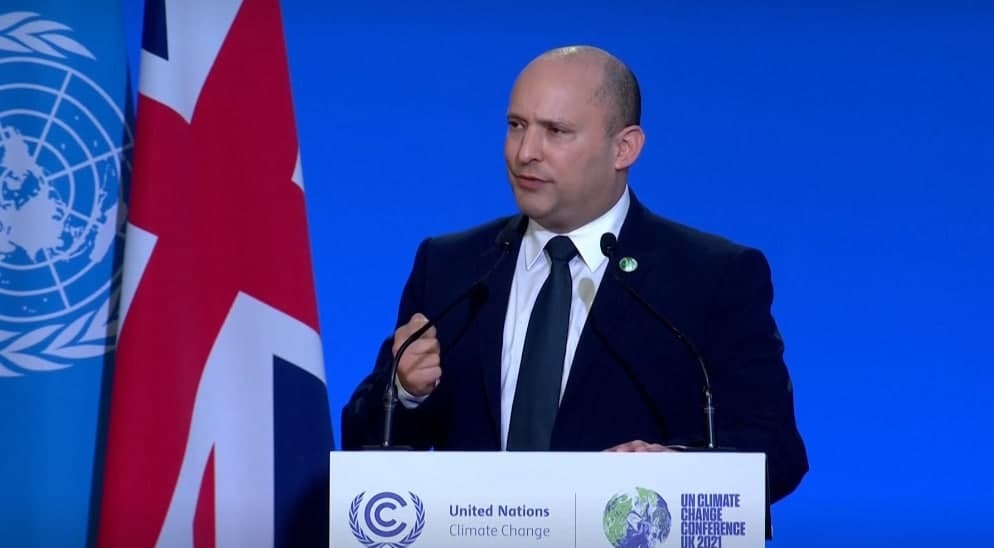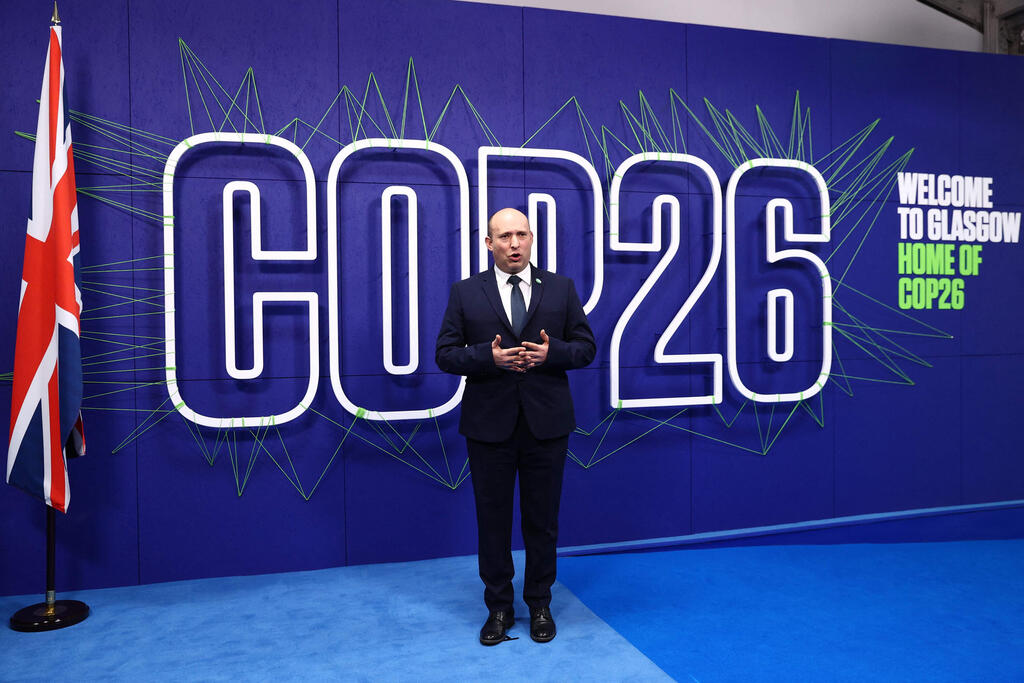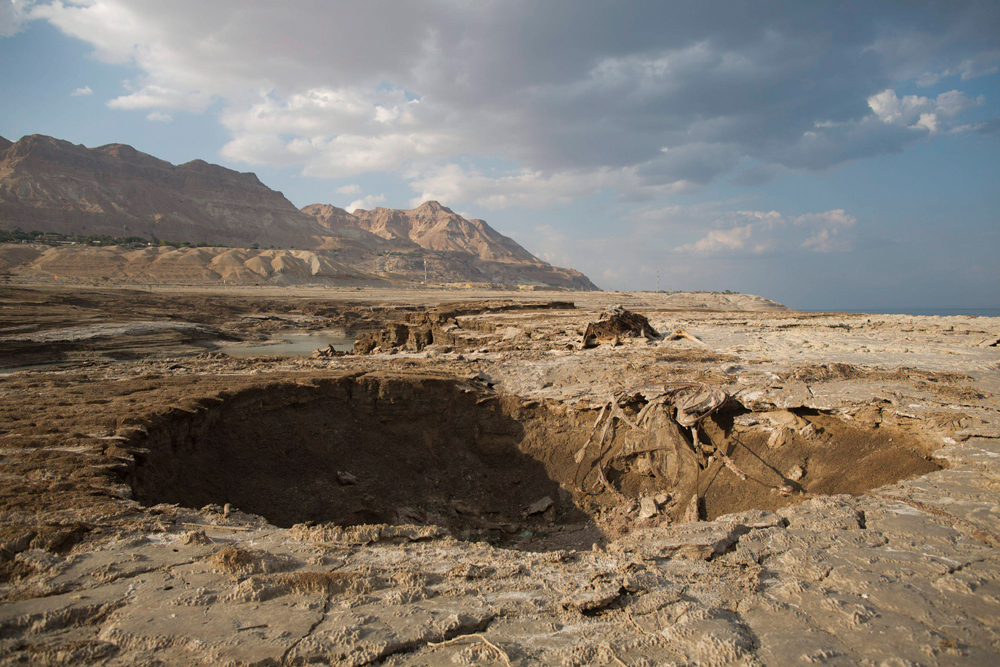Getting your Trinity Audio player ready...
"Israel is at the beginning of a revolution on climate change," Prime Minister Naftali Bennett said Monday on the second day of the COP26 climate conference in Glasgow, Scotland.
Taking up the rostrum after a considerable delay, Bennett warned that the world must act now or "it will be too late for our children."
3 View gallery


Prime Minister Naftali Bennett addressing the COP 26 climate conference
(Photo: Reuters)
He said that Israel has launched a "100-step plan" to tackle the climate crisis and committed to reaching net-zero greenhouse gas emissions by 2050 and phasing out the use of coal by 2025.
He added that although Israel is a small country that has a minute carbon footprint, it can still have great impact on climate through its innovative technologies.
“We need to contribute Israel’s most valuable source of energy: the energy and brainpower of our people. This is what feeds our innovation and ingenuity, this is where Israel can make a real difference,” the premier said.
Bennett then called on Israeli entrepreneurs to be in the vanguard of the global climate response and “Instead of building yet another hyped-up app, launch startups that will help solve this global threat."
To that end, the Israeli leader announced a special task force, dubbed the Green Sandbox, that would provide entrepreneurs with funding and aid them in navigating bureaucratic bumps.
"As we work to keep people safe today, we will also work for tomorrow's resilience; then our children will breathe cleaner air, drink cleaner water and live in a world that treats the planet better than us. Israel is the climate innovation nation and we’re ready to lead the way,” he concluded.
Meanwhile, data from Israeli environmental bodies reveal that Israel is warming up almost twice as fast as the rest of the world.
Data collected by Israel Meteorological Service (IMS) and Knesset Research and Information Center shows the changes in the Israeli climate from the 1950s until the present day.
In November 2019, the IMS published a comprehensive climate change report that showed Israel had warmed by an average of 1.4 degrees Celsius from 1950 to 2017, which is an average of about 0.21 degrees per decade. A follow-up report published Sunday by the director of the Meteorological Service's Climate Department, Avner Forshpan, and Dr. Yitzhak Yosef of the IMS suggests that between the years 2018-2020, the average warming up rate has increased from 1.4 to 1.5 degrees Celsius.
Between 1950-2020 no steady increase has been recorded. For instance, in the late 1980s, a slight drop in the average temperatures has been recorded, but since the early 1990s, there has been a significant temperature increase.
Between the years 1991-2020, an increase of 1.77 degrees Celsius had been recorded, with an average of 0.59 degrees Celsius per decade.
This suggests that the average warming up rate in the last three decades is nearly three times greater than the average rate calculated across all seven decades from 1950 up until today.



